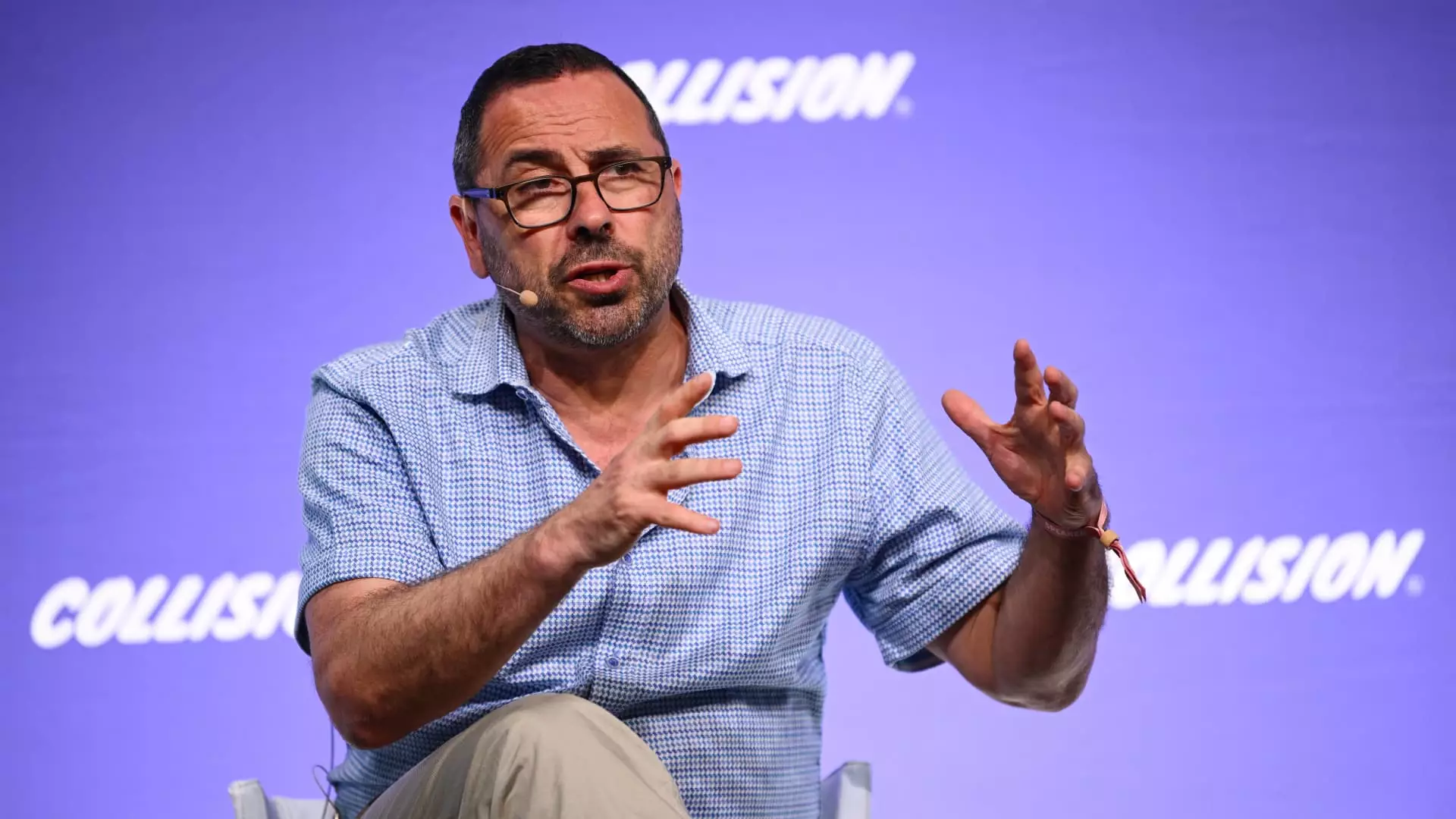Cerebras Systems, a pioneer in the artificial intelligence (AI) chip sector, has recently signaled a significant step in its growth trajectory by filing for an initial public offering (IPO) with the Nasdaq under the ticker “CBRS.” Founded in 2016 and headquartered in Sunnyvale, California, the company has developed cutting-edge technology to address the demands of AI model training and execution. Cerebras’s flagship product, the WSE-3 chip, claims superiority with greater cores and memory compared to the well-established Nvidia H100, setting the stage for a fierce rivalry in a rapidly evolving and increasingly competitive market.
The landscape for AI chips is becoming more saturated, with tech giants like Nvidia, AMD, Intel, Google, and Microsoft all vying for market share. Cerebras differentiates itself not only through its hardware offerings but also by providing cloud-based services that leverage proprietary computing clusters. While the company boasts an impressive technical capability with its larger WSE-3 chip, it is crucial to consider whether this will be enough to carve out a sustainable niche in a market dominated by Nvidia, whose graphical processing units (GPUs) have emerged as the preferred choice for AI applications.
However, Cerebras’s journey has not been devoid of hurdles. Recent financial disclosures reveal a net loss of $66.6 million in the first half of 2024, despite achieving $136.4 million in sales. Comparatively, the same period in the previous year saw larger losses at $77.8 million alongside minimal revenue of $8.7 million. Essentially, the company is grappling with substantial operational costs, largely attributed to a spike in personnel expenses needed to bolster its revenue-generating capabilities. These financial realities pose critical questions regarding Cerebras’s viability and its strategies for achieving profitability in a capital-intensive and volatile environment.
A concerning aspect of Cerebras’s current financial model is its heavy reliance on a single client, Group 42 (G42), which accounted for a staggering 83% of the company’s total revenue last year. Such dependency raises red flags about the risk associated with revenue fluctuation if G42 decides to shift its procurement strategy. Additionally, the fact that G42 holds less than 5% of Cerebras’s Class A shares with an option to purchase more, contingent upon future orders, further complicates the financial stability forecast. Cerebras must diversify its customer base to mitigate risks related to client dependency for sustainable growth.
The backdrop of the technology IPO market in 2024 has been characterized by cautious investor sentiment, primarily driven by inflationary pressures and elevated interest rates. Although this environment has pushed some tech investors toward more established and profitable assets, the recent reduction in rates by the Federal Reserve presents a glimmer of hope for tech companies aspiring to enter public markets. Nevertheless, Cerebras must navigate this challenging investment landscape astutely, particularly as they proceed without the backing of leading investment banks like Morgan Stanley and Goldman Sachs for their IPO.
Cerebras boasts a strong leadership team, with co-founder Andrew Feldman at the helm. Feldman’s prior success with the sale of SeaMicro to AMD demonstrates an understanding of the technology landscape that could be pivotal as Cerebras navigates its next steps. Institutional backing from notable venture firms, including Foundation Capital and Benchmark, lends credence to Cerebras’s operational models. High-profile individual investors like Sam Altman of OpenAI further enhance the startup’s strategic positioning.
As Cerebras prepares to transition into the public sphere, it faces dual challenges: maintaining innovation in a crowded field and achieving financial sustainability amid significant operating losses. The company must strategize effectively not only to attract diverse funding and clientele but also to position itself as a viable player against more entrenched competitors. While the path ahead may be fraught with challenges, Cerebras’s commitment to technological advancement could prove invaluable in carving a distinct identity within the competitive AI chip ecosystem. The upcoming IPO will reveal much about the appetite of investors for future growth narratives in an industry that is both innovative and uncertain.

